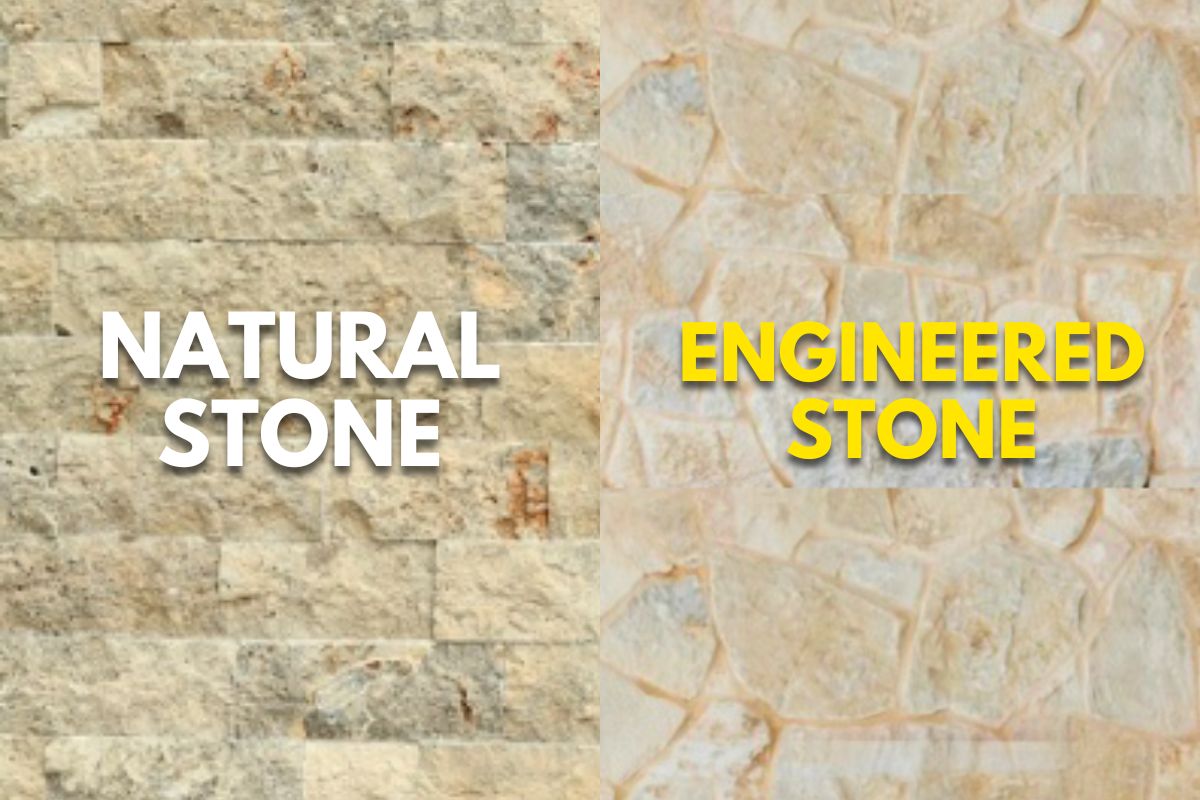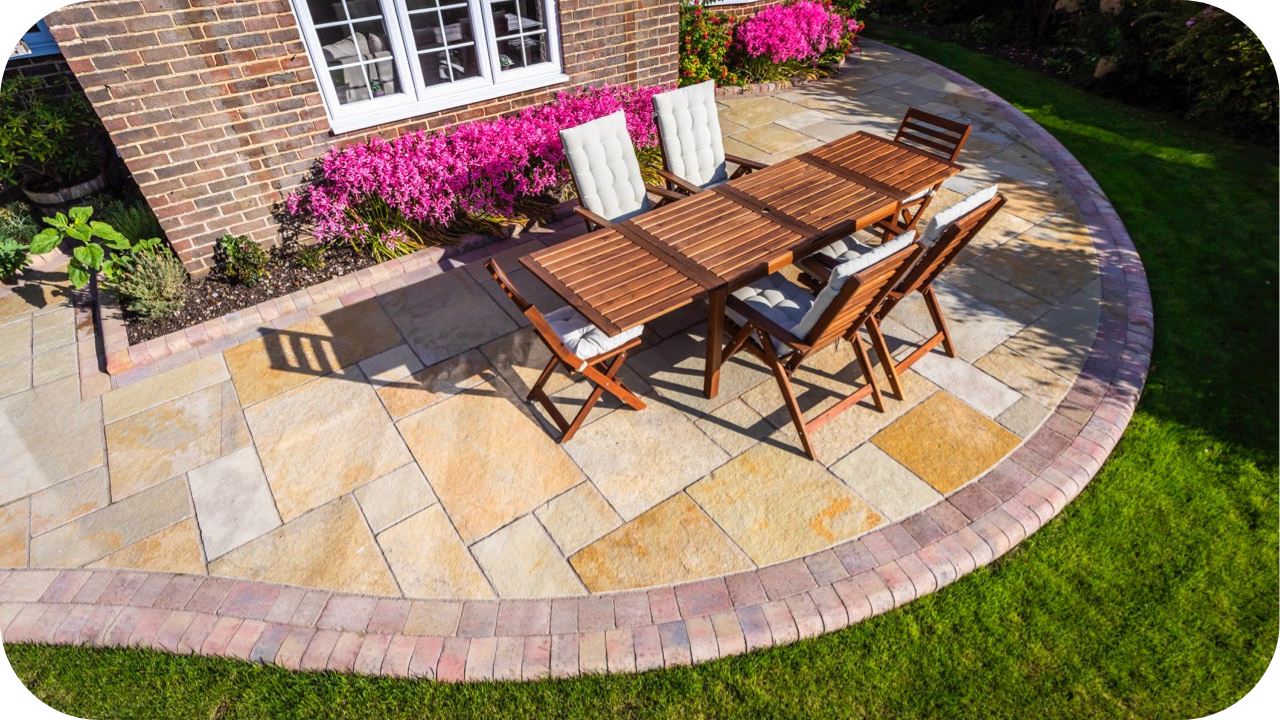
Choosing between natural and engineered stone can be daunting for homeowners and designers alike.
While both materials offer unique benefits and drawbacks, understanding their respective characteristics and suitability for different applications is crucial.
This article delves into the pros and cons of natural and engineered stone, providing valuable insights to help you make an informed decision.
Understanding Natural Stone
Understanding natural stone involves recognising its fundamental definition and characteristics. Natural stone comprises materials quarried from the earth, such as granite, marble, limestone, travertine, and slate.
These stones are formed through natural geological processes over thousands or even millions of years, resulting in unique patterns, colours, and textures.
One of natural stone’s primary appeals lies in its distinctive characteristics and variations. Each slab is inherently one-of-a-kind, showcasing intricate veining, flecks, and hues that cannot be replicated.
This uniqueness adds depth and personality to any application, whether a kitchen countertop, flooring, or a feature wall.
Pros and Cons of Natural Stone
| Pros of Natural Stone | Cons of Natural Stone |
| Natural beauty and aesthetics: Natural stone exhibits inherent beauty and aesthetics, adding a touch of luxury and elegance to any space. | Higher cost than engineered stone: Natural stone can be more expensive than engineered stone alternatives due to its extraction and manufacturing processes. |
| Timeless appeal and value: Natural stone’s timeless quality transcends trends, ensuring enduring allure and value. | Porosity and susceptibility to staining: Natural stone is porous and can absorb liquids, making it susceptible to staining if not properly sealed and maintained. |
| Durability and longevity: Natural stone is renowned for its exceptional durability and longevity, and with proper maintenance, it can withstand the test of time. | Variability in quality and availability: There may be variability in the quality and availability of natural stone, leading to potential inconsistencies in appearance and supply depending on the source and type of stone chosen. |
Exploring Engineered Stone
Exploring engineered stone unveils a material crafted through advanced manufacturing processes to mimic the aesthetics of natural stone while offering enhanced properties.
Engineered stone, also known as quartz or quartz composite, is primarily composed of crushed quartz crystals mixed with resins and pigments.
This blend undergoes a meticulous manufacturing process. It is compacted into slabs and cured under high pressure and heat.
Pros and cons of Engineered Stone
| Pros of Engineered Stone | Cons of Engineered Stone |
| Consistency in colour and pattern: Engineered stone ensures uniformity across large installations, providing a cohesive look with consistent colour and pattern. | Limited design options compared to natural stone: Engineered stone may lack the depth and uniqueness found in natural stone, resulting in limited design options. |
| Non-porous surface, resistant to stains: Engineered stone boasts a non-porous surface, making it highly resistant to stains, bacterial growth, and moisture penetration with minimal maintenance required. | Susceptibility to heat damage: Engineered stone can be susceptible to heat damage, requiring trivets or hot pads to prevent surface discolouration or warping. |
| More affordable than natural stone: Engineered stone is generally more cost-effective than natural stone, offering budget-friendly options without compromising offering budget-friendly options without compromising on quality or durability. | Potential for visible seams in large installations: In large installations, visible seams may appear in engineered stone, disrupting the seamless appearance desired in some designs. |
Applications and Suitability
Understanding their applications and suitability is crucial when selecting between natural and engineered stones.
Natural stone, such as granite, limestone, and sandstone, is prized for its unique patterns and durability, making it ideal for high-traffic areas like flooring, outdoor patios, and walling.
Natural stone’s inherent strength and resistance to wear make it a preferred choice for residential and commercial projects.
Additionally, its aesthetic appeal and timeless beauty enhance the value and appearance of any space. Natural stone offers a robust and visually appealing solution for paving, capable of withstanding the elements and heavy use.
On the other hand, engineered stone is manufactured to offer consistency in colour and pattern, making it a popular choice for modern interiors. Composed of crushed stone bound by resin, engineered stone surfaces, such as quartz, are non-porous, stain-resistant, and require minimal maintenance.
This makes them highly suitable for bathroom vanities and other areas where hygiene and ease of cleaning are paramount.
Engineered stone can also be used for wall cladding, providing a sleek, contemporary look. Moreover, it offers a broader range of colours and finishes, allowing for greater design flexibility in paving and interior applications.
Conclusion
Choosing between natural and engineered stone hinges on your project’s unique needs. Natural stone offers unparalleled beauty and durability, while engineered stone excels in consistency and low maintenance.
Evaluate your priorities and consult with Splendour in Stone to ensure the best choice for your space. Contact us today for expert advice on your stone selection.
More To Explore

Combining Natural Stone with Wood for a Modern Look
Imagine a living space where the raw, earthy beauty of wood meets the sleek elegance of natural stone. This powerful combination creates a perfect balance

Benefits of Natural Stone Pavers
Ever wondered why natural stone pavers are becoming a top choice for outdoor spaces? These durable, naturally quarried materials—like granite, sandstone, or bluestone—offer both strength


